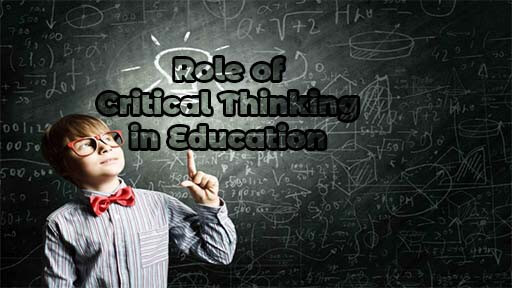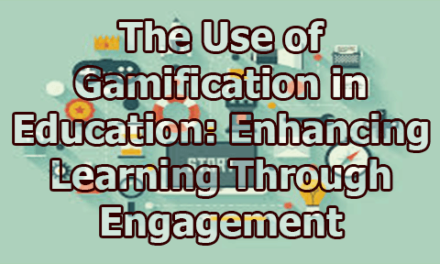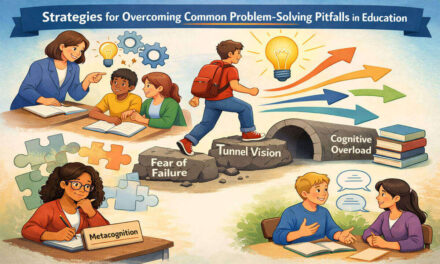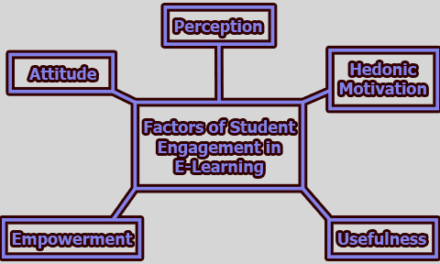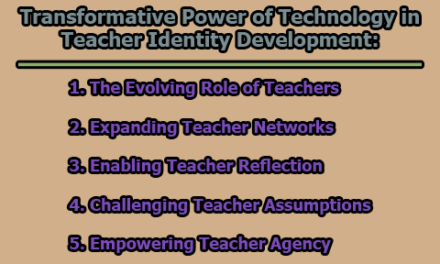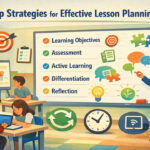Role of Critical Thinking in Education:
Critical thinking is a skill that is highly valued in education, the workplace, and personal life. It is the ability to analyze information, evaluate arguments, and make sound judgments based on evidence and reasoning. Critical thinking skills enable individuals to solve complex problems, identify biases and fallacies, and communicate effectively. In this article, we will discuss the role of critical thinking in education and its impact on student’s academic success.
What is Critical Thinking?
Critical thinking is a cognitive process that involves analyzing, evaluating, and synthesizing information to make informed decisions. It involves the use of logic, reason, and evidence to assess arguments, identify fallacies and biases, and draw conclusions. Critical thinking is an essential skill for academic success, as it allows students to think deeply, solve complex problems, and make informed decisions based on evidence and reasoning.
Why is Critical Thinking Important in Education?
Critical thinking is essential in education for several reasons. First, it helps students learn how to think independently, make informed decisions, and solve complex problems. In today’s complex and ever-changing world, critical thinking is a necessary skill that can help students navigate through the challenges they may face in the future.
Second, critical thinking is essential for academic success. It helps students understand and analyze information, evaluate arguments, and make informed judgments based on evidence and reasoning. Students who can think critically are more likely to excel in their studies and achieve academic success.
Third, critical thinking is essential for lifelong learning. It helps students develop a thirst for knowledge, encourages them to ask questions, and teaches them how to find and evaluate information. Students who can think critically are more likely to continue learning throughout their lives and remain engaged in the world around them.
How can Critical Thinking be Developed in Education?
Critical thinking is a skill that can be developed through education. Here are some ways in which critical thinking can be developed in education:
- Encourage students to ask questions: Asking questions is a fundamental aspect of critical thinking. By encouraging students to ask questions, teachers can help them develop critical thinking skills. Teachers can encourage students to ask open-ended questions that require analysis and evaluation. This will help students learn how to analyze information and evaluate arguments.
- Teach students to evaluate information: Teaching students how to evaluate information is an essential part of developing critical thinking skills. Students need to learn how to assess the credibility and reliability of information sources. This includes learning how to identify bias and fallacies in arguments and how to distinguish between fact and opinion.
- Teach students to analyze information: Analyzing information is a critical thinking skill that involves breaking down complex information into its component parts and examining them. Teachers can help students develop this skill by providing them with opportunities to analyze information from various sources, such as texts, videos, and images.
- Encourage students to think creatively: Creative thinking is an essential part of critical thinking. Teachers can encourage students to think creatively by providing them with opportunities to generate new ideas and solve problems in innovative ways. This will help students develop their problem-solving skills and learn how to approach challenges from different angles.
- Provide opportunities for reflection: Reflection is an essential part of the critical thinking process. Teachers can provide students with opportunities to reflect on their learning experiences and assess their progress. This will help students develop metacognitive skills, which are crucial for critical thinking.
- Teach students to communicate effectively: Effective communication is an essential part of critical thinking. Teachers can teach students how to communicate effectively by providing them with opportunities to present their ideas and arguments orally and in writing. This will help students develop their communication skills and learn how to articulate their thoughts clearly and logically.
Benefits of Critical Thinking in Education:
Critical thinking has several benefits in education. Here are some of the main benefits of critical thinking in education:
a. Improved academic performance: Students who can think critically are more likely to excel in their studies and achieve academic success. This is because critical thinking skills enable students to analyze information, evaluate arguments, and make informed judgments. As a result, they are better equipped to understand complex concepts, solve problems, and communicate effectively.
b. Preparation for the workforce: In today’s rapidly changing world, critical thinking skills are essential for success in the workforce. Employers are looking for employees who can think critically, analyze information, and solve complex problems. Students who develop critical thinking skills in education are better prepared for the workforce and are more likely to be successful in their careers.
c. Improved decision-making: Critical thinking skills enable individuals to make informed decisions based on evidence and reasoning. Students who develop critical thinking skills are better equipped to make decisions that are based on facts and logic rather than emotions or biases. This can lead to better decision-making in all aspects of life, from personal decisions to professional decisions.
d. Increased creativity and innovation: Critical thinking skills encourage creativity and innovation. Students who can think critically are more likely to come up with innovative solutions to problems and generate new ideas. This can lead to advancements in science, technology, and other fields, as well as the development of new products and services.
e. Lifelong learning: Critical thinking skills are essential for lifelong learning. Students who develop critical thinking skills in education are more likely to continue learning throughout their lives. They are curious, ask questions, and seek out new information. This enables them to stay engaged in the world around them and continue to grow and develop as individuals.
From the above discussion, we can say that critical thinking is an essential skill in education. It enables students to think independently, solve complex problems, and make informed decisions based on evidence and reasoning. Critical thinking skills can be developed through education, and they have several benefits, including improved academic performance, preparation for the workforce, improved decision-making, increased creativity and innovation, and lifelong learning. Therefore, it is crucial for educators to teach critical thinking skills and provide students with opportunities to develop these skills.
References:
- Halpern, D. F. (2014). Thought and knowledge: An introduction to critical thinking. Psychology Press.
- Facione, P. A. (2011). Critical thinking: What it is and why it counts. California Academic Press.
- Ennis, R. H. (1996). Critical thinking. Prentice-Hall.
- Abrami, P. C., Bernard, R. M., Borokhovski, E., Wadem, A., Surkes, M. A., Tamim, R., & Zhang, D. (2008). Instructional interventions affecting critical thinking skills and dispositions: A stage 1 meta-analysis. Review of educational research, 78(4), 1102-1134.
- Paul, R., & Elder, L. (2006). Critical thinking: The nature of critical and creative thought. Journal of developmental education, 30(2), 34-35.
- Lipman, M. (2003). Thinking in education. Cambridge University Press.
- Svinicki, M. D., & McKeachie, W. J. (2014). McKeachie’s teaching tips: Strategies, research, and theory for college and university teachers. Wadsworth Cengage Learning.
- Garrison, D. R., & Kanuka, H. (2004). Blended learning: Uncovering its transformative potential in higher education. The internet and higher education, 7(2), 95-105.
- Paul, R., & Nosich, G. M. (2011). A model for the national assessment of higher order thinking. Inquiry: Critical Thinking Across the Disciplines, 26(1), 26-41.
- Willingham, D. T. (2007). Critical thinking: Why is it so hard to teach?. American Educator, 31(2), 8-19.

Library Lecturer at Nurul Amin Degree College

